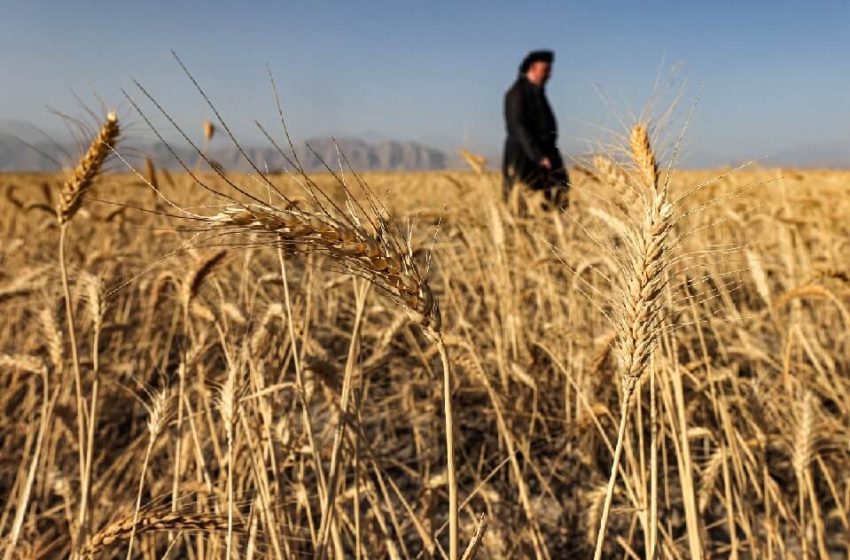Iraq achieves self-sufficiency in wheat

A farmer inspects his wheat farm near Sulaimaniyah, Iraq. Photo: AFP/Getty Images
Baghdad (IraqiNews.com) – The Iraqi Minister of Trade, Atheer Al-Ghurairy, stated on Saturday that Iraq achieved self-sufficiency in wheat for this season as the supply exceeded expectations, according to a statement cited by the Iraqi News Agency (INA).
The Iraqi ministry illustrated in its statement that Al-Ghurairy visited marketing sites in Kirkuk governorate and met with farmers to discuss ways to overcome obstacles and organize the entry of wheat trucks into the market.
An official at the Iraqi Ministry of Agriculture said that the wheat crop is expected to range between 4 million and 4.5 million tons this season.
The Iraqi Minister of Agriculture, Abbas Jabr, said last March that wheat production in Iraq is expected to reach four million tons during the 2022–2023 season, according to Reuters.
Jabr explained that the increase in production is a result of the government’s plan to cultivate 4,000 square kilometers in desert lands and 2,500 square kilometers in other parts of Iraq.
The Iraqi market needs about 4.2 million tons annually to achieve self-sufficiency in the wheat crop.
For quality purposes, Iraq imports one million tons of wheat to mix it with the local wheat, which does not have the required percentage of gluten, according to the Ministry of Trade.
Iraq was self-sufficient in wheat during the three years before the war in Ukraine, with production of 4.7 million tons in 2019, 6.2 million tons in 2020, and about 4.2 million tons in 2021.
However, factors such as water scarcity and desertification led to a decrease in the local production of wheat, which reached about three million tons last season, prompting the government to import wheat to cover the shortfall.
The lack of rain in the winter season constitutes the most significant challenge to the production of agricultural crops in Iraq, including wheat, rice and barley.
